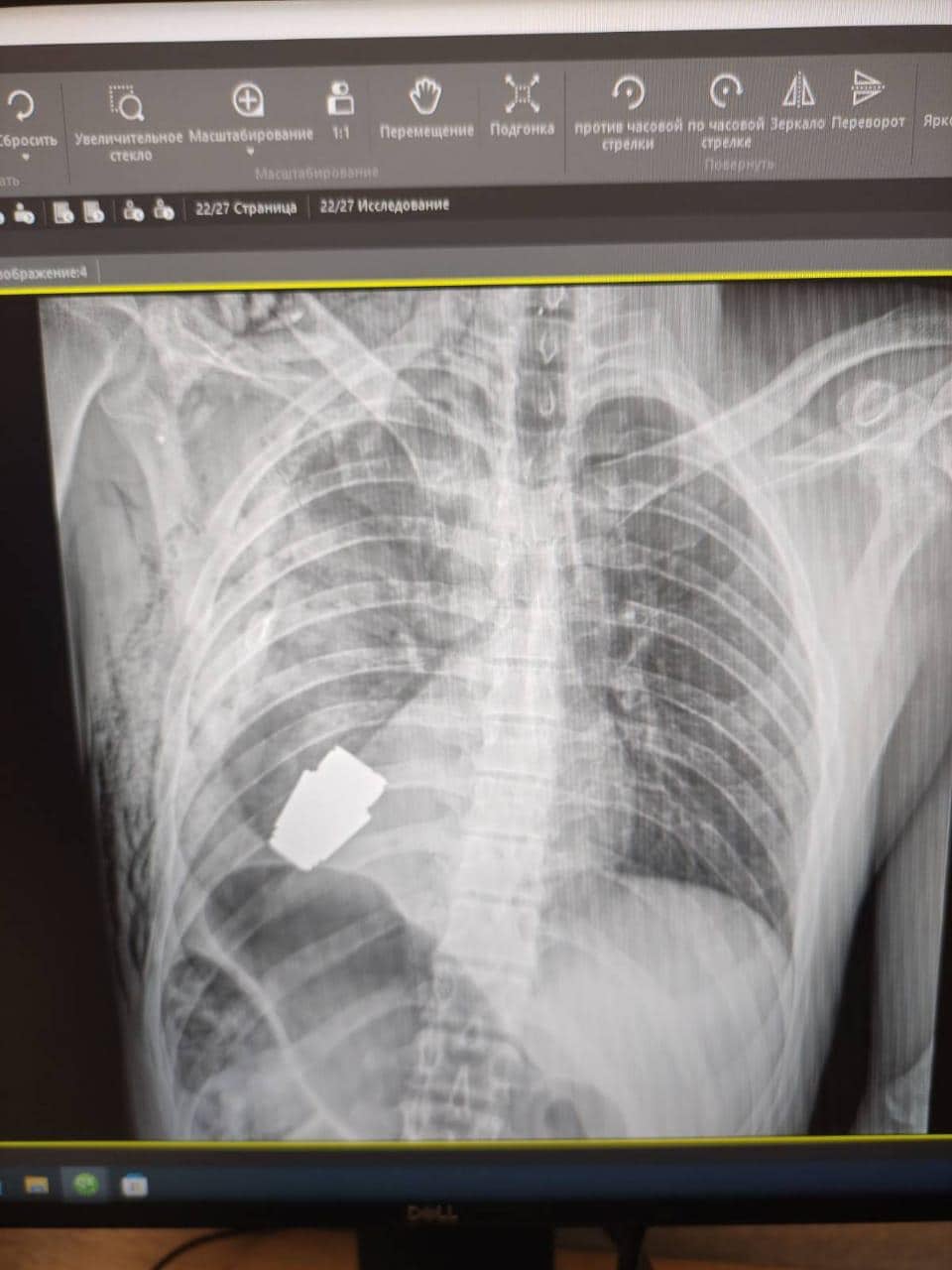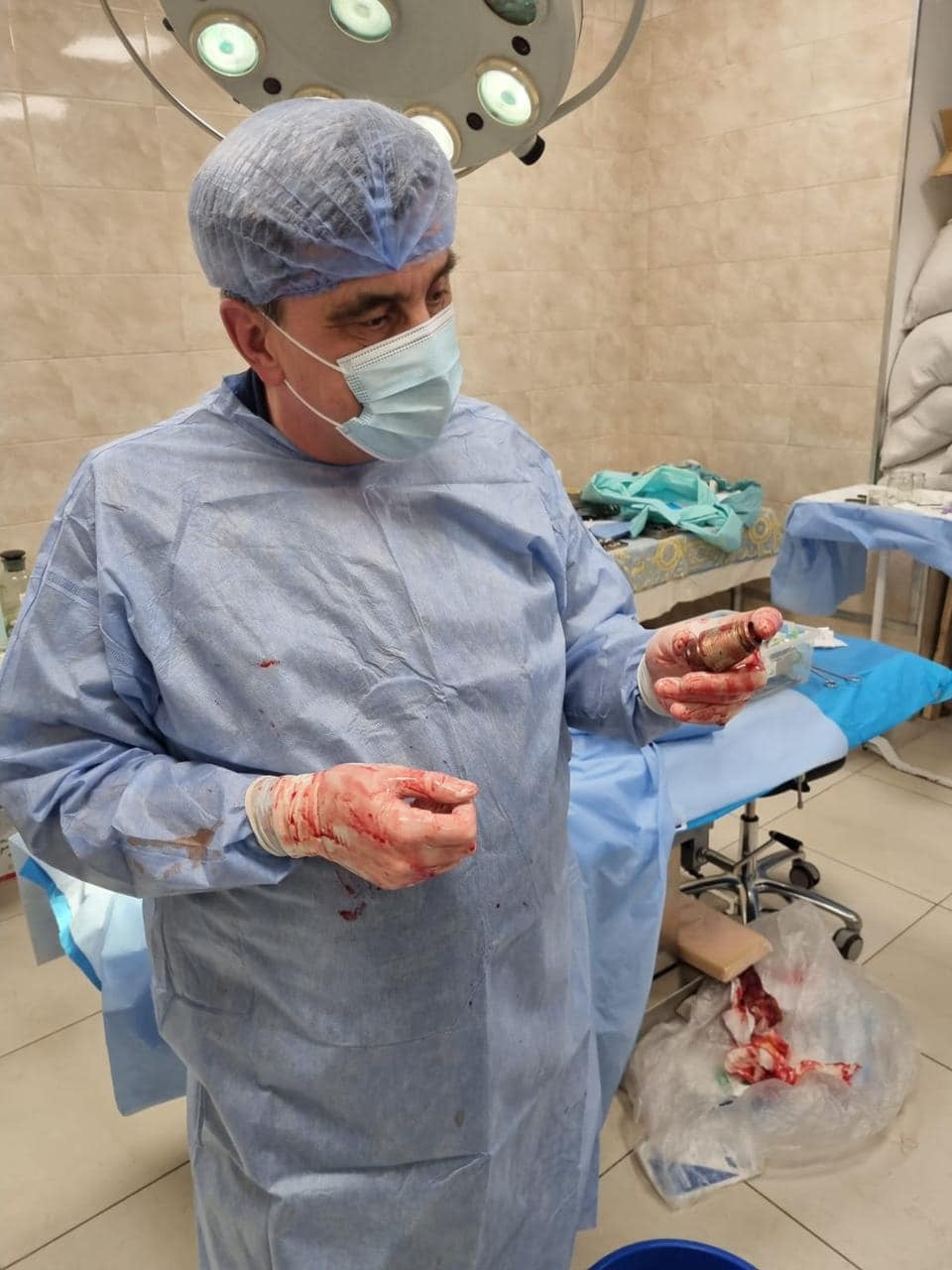Surgeons ‘remove unexploded grenade lodged in Ukrainian soldier’s chest’
Ukraine’s deputy defence minister said the deviced was extracted in an operation closely monitored by sappers

Remarkable pictures show a hand grenade said to have been lodged in a Ukrainian soldier’s chest before surgeons removed it.
The unexploded device, just beneath the heart of the soldier, was taken out in the presence of two sappers to ensure the safety of the medical staff Ukraine’s deputy defence minister said. It is not clear how the grenade got there.
The operation was carried out without using electrocoagulation, a technique used in surgery to control bleeding by passing electric currents through tissue, to prevent the grenade from detonating.

Hanna Maliar, Ukraine’s Deputy Defence Minister, posted the X-ray on social media. Another post showed a surgeon with bloodied gloves, still wearing his apron and bouffant cap, with the grenade held in his hand.
“Not every wound in the heart area is deadly!” Maliar added.
The operation was carried out successfully, according to Maliar, by one of the most experienced surgeons of the Armed Forces of Ukraine, Andrew Willow.
The grenade remained intact during the removal, and the 28 year-old soldier has since been sent for rehabilitation for a full recovery, it is claimed.

According to Rosoboronexport, a “state-controlled” Russian defence export company, VOG grenades are designed to be fired from grenade launchers attached to assault rifles.
They can be shot from a range of up to 400m and attack “exposed enemy manpower” inside military equipment such as vehicles, launchers and radars.
Anton Gerashchenko, Ukraine’s internal affairs ministerial adviser, said the team of sappers successfully neutralised the grenade and described the procedure as one that would “go down in medical textbooks”.
“There have never been such operations in the practice of our doctors. Similar was during the war in Afghanistan,” wrote Gerashchenko. “About the current patient, I can say that he was born in 1994, now he is sent for rehabilitation, his condition is stable. I think this case will go down in medical textbooks.”



Join our commenting forum
Join thought-provoking conversations, follow other Independent readers and see their replies
0Comments